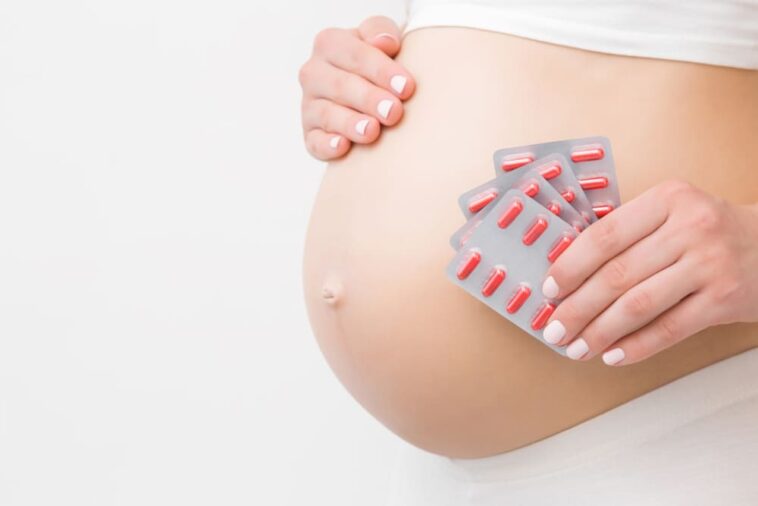During pregnancy, your baby needs to get a number of important vitamins and minerals. For the full development of all important organs and systems. All useful and necessary substances come from the mother to the baby through the blood. And one of the main trace elements is iron, which, as part of the protein (hemoglobin ) carries oxygen to each cell and utilizes carbon dioxide. In this way the baby’s body develops well. The brain is the most sensitive to oxygen deficiency.
During pregnancy, iron consumption increases significantly. Before the 20th week of pregnancy, ferritin levels drop by 50%, by the 30th week by 70%. The placenta grows, the fetus develops, a large number of new blood vessels form, and the baby begins to form its own blood cells. Starting from the 15th-16th week of pregnancy, the amount of blood plasma in the mother’s body increases by almost 50%. But the number of red blood cells increases by 25% only. As a result, the blood becomes more “diluted” and the hemoglobin level drops.
If hemoglobin decreases, it has a negative effect on both the mother and the baby. Very often a decrease in hemoglobin in the blood does not cause any complaints and a woman can only find this out when she has a scheduled blood test.
But the most common symptoms that occur are:
- weakness, increased fatigue.
- shortness of breath
- fainting
- dizziness
- pale skin
Therefore, it is very important to maintain the level of iron in the body of the future mother
The most important indicator of iron deficiency anemia is a decrease in hemoglobin levels below 110 g/l. And one of the most accurate indicators is a decrease in ferritin levels in the blood. This indicator is the first to decrease in anemia. If ferritin is below 50 ng/L, it is a confirmation of the development of iron deficiency. If ferritin is below 30 mg/ml, it is a sign of iron depletion. Normally, ferritin should be from a person’s weight figure.
Nutrition is very important in the treatment of anemia.
A woman should eat meat in sufficient quantities. It is from meat that more iron is absorbed, about 6% (so-called hemic iron), whereas from vegetable food no more than 0.2% (non-hemic iron).
It is very important that the diet of the expectant mother is rich in protein, calcium and iron.
Fruits and vegetables must be eaten in season. A pregnant woman needs sufficient sleep and regular walks in the fresh air.
For mild to moderate anemia, preparations containing easily absorbable iron (iron bisglycinate) are used.
Taking additional vitamins along with iron:
- Vitamin C improves iron absorption
- Vitamin B12 improves iron absorption.
- Folic acid (vitamin B9) has a positive effect on the female reproductive system and increases iron bioavailability.
- Copper improves iron absorption and has an antioxidant effect.
- Manganese improves the synthesis of hemoglobin and is an antioxidant.
It is important to know that the highest risk group for the development of iron deficiency are women with changes in the thyroid gland. For such women, it is important to take iron together with a split (bioavailable) form of folic acid and vitamin B 12 (in the form of metafolin and methylcobalamin). Gluten-containing foods (pasta, baked goods, thick sauces, sausages, canned foods, sweets) markedly reduce the ability to absorb iron.
Many preparations containing iron are available in the form of tablets and capsules. They are easy to use, have a fairly high bioavailability, and the outer shell masks the unpleasant taste of iron salts. Such forms have a number of positive effects. In liquid form, iron preparations cause darkening of tooth enamel, for this reason it is not recommended to use this form.
There are rules about how to take iron so that it is absorbed into the body as much as possible:
- Iron should be taken with a glass of water or apple/orange juice
- Do not take calcium or magnesium together with iron.
- Do not wash down your iron with tea or coffee.
- Dairy and milk products and iron should not be taken at the same time.
During pregnancy, you should regularly monitor hemoglobin levels and other blood parameters, try not to skip major meals, eat a varied and nutritious diet. Remember that all the lack of nutrition the baby will take from the reserves of the mother’s body, and after delivery it affects the general state of the mother, her appearance, metabolic processes, the condition of her hair.






